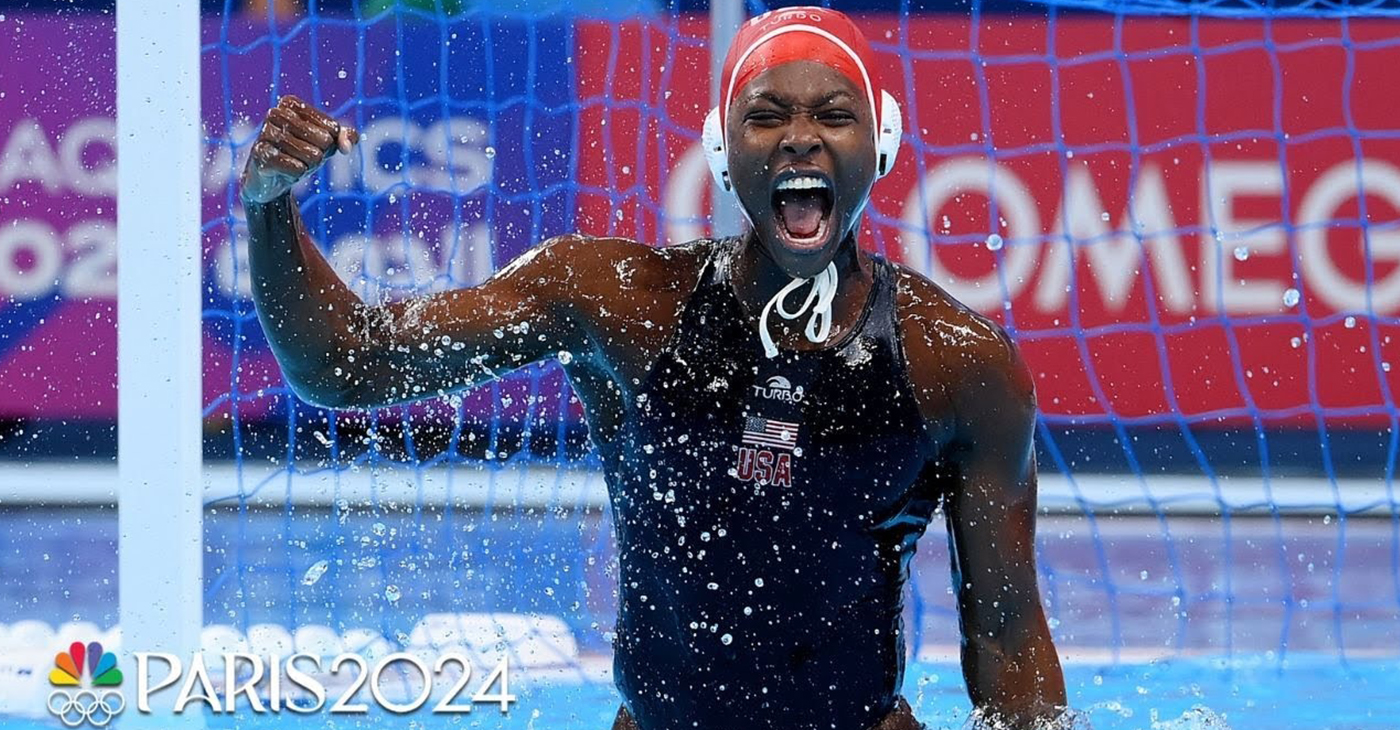Sports
Aaron Judge shows why it’s unwise for fans to taunt Aaron Judge
Neque porro quisquam est, qui dolorem ipsum quia dolor sit amet, consectetur, adipisci velit, sed quia non numquam eius.

Sed ut perspiciatis unde omnis iste natus error sit voluptatem accusantium doloremque laudantium, totam rem aperiam, eaque ipsa quae ab illo inventore veritatis et quasi architecto beatae vitae dicta sunt explicabo.
Neque porro quisquam est, qui dolorem ipsum quia dolor sit amet, consectetur, adipisci velit, sed quia non numquam eius modi tempora incidunt ut labore et dolore magnam aliquam quaerat voluptatem. Ut enim ad minima veniam, quis nostrum exercitationem ullam corporis suscipit laboriosam, nisi ut aliquid ex ea commodi consequatur.
At vero eos et accusamus et iusto odio dignissimos ducimus qui blanditiis praesentium voluptatum deleniti atque corrupti quos dolores et quas molestias excepturi sint occaecati cupiditate non provident, similique sunt in culpa qui officia deserunt mollitia animi, id est laborum et dolorum fuga.
Quis autem vel eum iure reprehenderit qui in ea voluptate velit esse quam nihil molestiae consequatur, vel illum qui dolorem eum fugiat quo voluptas nulla pariatur.
Temporibus autem quibusdam et aut officiis debitis aut rerum necessitatibus saepe eveniet ut et voluptates repudiandae sint et molestiae non recusandae. Itaque earum rerum hic tenetur a sapiente delectus, ut aut reiciendis voluptatibus maiores alias consequatur aut perferendis doloribus asperiores repellat.
Lorem ipsum dolor sit amet, consectetur adipisicing elit, sed do eiusmod tempor incididunt ut labore et dolore magna aliqua. Ut enim ad minim veniam, quis nostrud exercitation ullamco laboris nisi ut aliquip ex ea commodo consequat.
“Duis aute irure dolor in reprehenderit in voluptate velit esse cillum dolore eu fugiat”
Nemo enim ipsam voluptatem quia voluptas sit aspernatur aut odit aut fugit, sed quia consequuntur magni dolores eos qui ratione voluptatem sequi nesciunt.
Et harum quidem rerum facilis est et expedita distinctio. Nam libero tempore, cum soluta nobis est eligendi optio cumque nihil impedit quo minus id quod maxime placeat facere possimus, omnis voluptas assumenda est, omnis dolor repellendus.
Nulla pariatur. Excepteur sint occaecat cupidatat non proident, sunt in culpa qui officia deserunt mollit anim id est laborum.
Black History
Ashleigh Johnson: Pioneering the Way in Water Polo
Ashleigh Johnson attended Princeton University, where she played for the Tigers and dominated collegiate water polo. During her time at Princeton, she became the program’s all-time leader in saves and was recognized for her extraordinary ability to anticipate plays and block shots. She was a three-time All-American and was pivotal in leading her team to multiple victories. Balancing rigorous academics and athletics, she graduated with a degree in Psychology, showcasing her determination both in and out of the pool.

By Tamara Shiloh
Ashleigh Johnson has become a household name in the world of water polo, not only for her incredible athleticism and skill but also for breaking barriers as the first Black woman to represent the United States in the sport at the Olympic level. Her journey begins as a determined young athlete to a record-breaking goalkeeper.
Born on September 12, 1994, in Miami, Florida, Ashleigh grew up in a family that valued sports and academics. She attended Ransom Everglades School, where she was introduced to water polo. Despite water polo being a niche sport in her community, she quickly stood out for her remarkable agility, intelligence, and reflexes. Her unique skill set made her a natural fit for the demanding role of a goalkeeper.
Ashleigh attended Princeton University, where she played for the Tigers and dominated collegiate water polo. During her time at Princeton, she became the program’s all-time leader in saves and was recognized for her extraordinary ability to anticipate plays and block shots. She was a three-time All-American and was pivotal in leading her team to multiple victories. Balancing rigorous academics and athletics, she graduated with a degree in Psychology, showcasing her determination both in and out of the pool.
In 2016, Ashleigh made history as the first Black woman to be selected for the U.S. Olympic Water Polo Team. Representing her country at the Rio Olympics, she played a crucial role in helping Team USA secure the gold medal. Her stellar performances earned her the distinction of being named the tournament’s top goalkeeper, further cementing her status as one of the best players in the sport’s history.
Ashleigh didn’t just stop at one Olympic appearance. She continued her dominance in water polo, playing a key role in Team USA’s gold medal win at the 2020 Tokyo Olympics. Her ability to remain composed under pressure and deliver outstanding saves in crucial moments made her an irreplaceable member of the team.
At the age of 29, Johnson appeared in her third Olympiad in Paris at the 2024 Summer Olympics. Their first match was against Greece and the US team won easily and Johnson only gave up 4 points. U.S. Olympic head coach Adam Krikorian shared, “She’s an incredible athlete. She’s got great hand-eye coordination, great reflexes and reactions. And then she’s fiercely competitive – fiercely. And you would never know it by her demeanor or by the huge smile on her face. But to us, on the inside, we know how driven she is to be one of the best ever to do it.”
Team USA Women’s Water Polo ended their Olympic season in fourth place after a 10 – 11 loss to the Netherlands. Johnson only allowed 37 percent of the shots from the Netherlands.
Beyond her achievements in the pool, Ashleigh has used her platform to advocate for diversity in water polo and sports in general. As a trailblazer, she recognizes the importance of representation and works to encourage young athletes, particularly those from underrepresented backgrounds, to pursue their dreams.
Ashleigh has spoken about the challenges she faced as a Black woman in a predominantly white sport and how she turned those obstacles into opportunities for growth.
Business
Sacramento Kings and Black-Owned Digital License Plate Firm Enter History-Making Partnership
Reviver founder and Chief Strategy Officer Neville Boston attended the Sacramento Kings’ season opener at Golden 1 Center, witnessing players debut the company’s patch. Reviver proudly supports the Sacramento Kings’ community and diversity, equity, and inclusion initiatives. Photo by Antonio Ray Harvey, California Black Media (CBM).

By Antonio Ray Harvey, California Black Media
Reviver, the world’s first digital license plate and connected vehicle platform, has entered into a history-making jersey patch partnership with the Sacramento Kings, team officials announced right before the team’s season opener on Oct. 24.
The collaboration establishes Reviver as the first Black-founded technology jersey patch partner in the National Basketball Association (NBA).
The Reviver logo now appears on the left front strap of Kings’ uniforms.
Reviver founder and Chief Strategy Officer Neville Boston was in attendance to see the company’s patch worn by the Kings, during a game with the Minnesota Timberwolves at Golden 1 Center in downtown Sacramento.
“It was an absolutely amazing night. More than I ever expected,” Boston told California Black Media (CBM). “The Sacramento Kings have been incredible. On a national, and maybe a worldwide level, this partnership raises the profile of Reviver with the assistance of (Kings chairman and CEO) Vivek Ranadivé and the Kings.”
According to the Kings’ brass, Reviver, supported by the Black Star Fund, a Black-led venture capital firm based in Sacramento, is now an official “innovation partner” of the Kings and Golden 1 Center; a presenting partner of “Capitalize Technology,” a King’s corporate social investment initiative; and the exclusive digital license plate of the Sacramento Kings.
Headquartered in Granite Bay, a suburb of Sacramento, Reviver was born from a vision to modernize and streamline the vehicle registration renewal process. On Jan. 1, 2023, the state of California joined Georgia, Colorado, Michigan, and Arizona as states that have approved digital license plates for use statewide, after Reviver completed a four-year pilot program that evaluated a replacement for metal plates.
About 10,000 California drivers bought digital plates during the pilot program. Vehicles registered with the state are eligible to adopt the new high-tech tags. Reviver existence was made possible when Gov. Gavin Newsom signed Assembly Bill (AB) 984 in September 2022.
Under that law, California vehicle owners can update their titles, registrations, and other records remotely. In addition, the digital license “RPlate” includes a flashing message if a vehicle is reported stolen or if there is an Amber Alert.
Ranadivé is spreading the news that Reviver has international potential.
“This jersey patch partnership with Reviver continues the Kings long tradition of using our global platform to promote innovation and technology,” Ranadivé stated. “It’s particularly exciting to showcase a homegrown company that was part of our Kings Capitalize program. This is just the beginning of our work together, and we look forward to helping Reviver in its mission to modernize the driving experience.”
The commercial use of patches in professional basketball all began in 2009 when the Women’s Basketball Association (WNBA) Phoenix Mercury removed its name to replace it with sponsor, LifeLock, an identity-theft protection company. The landmark deal netted a contract worth about $1 million annually.
Kindra Montgomery-Block, vice president of diversity, equity, and social impact for the Sacramento Kings, was the integral facilitator who assisted Boston and his team in connecting with the sports franchise that is boasting 40 years in the Capital City.
“This partnership between the Kings and Reviver, backed by the Black Star Fund, will invest in the Sacramento community to promote technology and innovation in the region,” Montgomery-Block stated. “Reviver will support the Sacramento Kings community and diversity, equity, and inclusion initiatives.”
Editor’s Note: Neville Boston is a California Black Media board member.
Black History
Martial Artist Victor Moore: An American Karate and Kickboxing Pioneer
Throughout his career, Moore defeated many national champions, including Joe Lewis, Mike Stone, and Bill “Superfoot” Wallace. Moore placed in every tournament he competed in from 1965 until his retirement in 1975, defeating renowned national champions such as Mike Foster, Chuck Norris, Fred Wren, Glenn Keeney, James Hawkes, and Jim Kelly. Moore emphasizes that winning or losing does not diminish a champion’s credibility — they are all champions in his eyes.

By Tamara Shiloh
Victor Moore, born on Aug. 23, 1943, holds a 10th-degree Black Belt in Karate and is a four-time world karate champion.
As one of the chief instructors under Robert Trias in the Shuri-ryu Karate system, Moore was also among the first ten members of the Trias International Society. Over his 50-year martial arts career, he trained in various styles, including Chito-ryu with William J. Dometrich, Judo, Kempo, and Bondo karate.
Moore began his martial arts journey at the age of 7 in Cincinnati, lifting weights and reading Charles Atlas books to guide his training. By age 9, he had learned the basics of jujitsu and judo, and at 12, he began training in Kempo karate under Ronald Williams, who awarded him his first black belt after five years of instruction.
In 1961, Moore expanded his training by joining a judo school led by Ray Hughes and later trained in Gyu Ryu-karate under Harvey Eubanks. He studied Kempo with Bill Dometrich and continued exploring different karate styles. Instructors at the time, required students to start as white belts in each new style, even if they held black belts elsewhere, which shaped Moore’s adaptability.
Chung Ling, an exchange student from China, introduced Moore and others to Chuan Fa, enhancing Moore’s understanding of martial arts. He also took up judo at a school in Cincinnati, where he earned his brown belt, and trained in karate with Jim Wax, who had studied under the Shimabuku brothers. Moore’s toughness was further honed by his boxing experience at the 9th Street YMCA, where he became a sparring partner for Tiger Joe Harris.
At Central State University, Professor Barry Yasuto trained Moore in Shotokan karate, but Moore was denied entry to the Japanese Karate Association, possibly due to his race. After returning to Cincinnati, Moore opened his first karate school and began competing in national tournaments. He traveled across the U.S., eventually meeting Robert Trias, who became his mentor and helped him rise to the second-degree black belt level. Under Trias, Moore continued training in Kempo and Goju-Ryu styles.
Moore also trained under Dr. Maung Gyi, learning Bondo karate, stick fighting, and kickboxing. In 1973, Moore and Joe Lewis introduced kickboxing to America on the Merv Griffin TV show. Moore competed in the first kickboxing tournament in the U.S., facing Jim Harrison in a historic fight.
Throughout his career, Moore defeated many national champions, including Joe Lewis, Mike Stone, and Bill “Superfoot” Wallace. Moore placed in every tournament he competed in from 1965 until his retirement in 1975, defeating renowned national champions such as Mike Foster, Chuck Norris, Fred Wren, Glenn Keeney, James Hawkes, and Jim Kelly. Moore emphasizes that winning or losing does not diminish a champion’s credibility — they are all champions in his eyes.
Moore continues to teach martial arts, working with instructors and students nationwide. His daughters, Vickie and Vonnie, and his son, Vanceston, also train under his guidance.
-

 Activism4 weeks ago
Activism4 weeks agoOakland Post: Week of November 27 – December 3, 2024
-

 Activism3 weeks ago
Activism3 weeks agoButler, Lee Celebrate Passage of Bill to Honor Congresswoman Shirley Chisholm with Congressional Gold Medal
-

 Activism3 weeks ago
Activism3 weeks agoPost News Group to Host Second Town Hall on Racism, Hate Crimes
-

 Activism3 weeks ago
Activism3 weeks agoDelta Sigma Theta Alumnae Chapters Host World AIDS Day Event
-

 Business3 weeks ago
Business3 weeks agoLandlords Are Using AI to Raise Rents — And California Cities Are Leading the Pushback
-

 Arts and Culture2 weeks ago
Arts and Culture2 weeks agoPromise Marks Performs Songs of Etta James in One-Woman Show, “A Sunday Kind of Love” at the Black Repertory Theater in Berkeley
-

 Activism3 weeks ago
Activism3 weeks agoOakland Post: Week of December 4 – 10, 2024
-

 Activism2 weeks ago
Activism2 weeks agoOakland Post: Week of December 11 – 17, 2024






























































